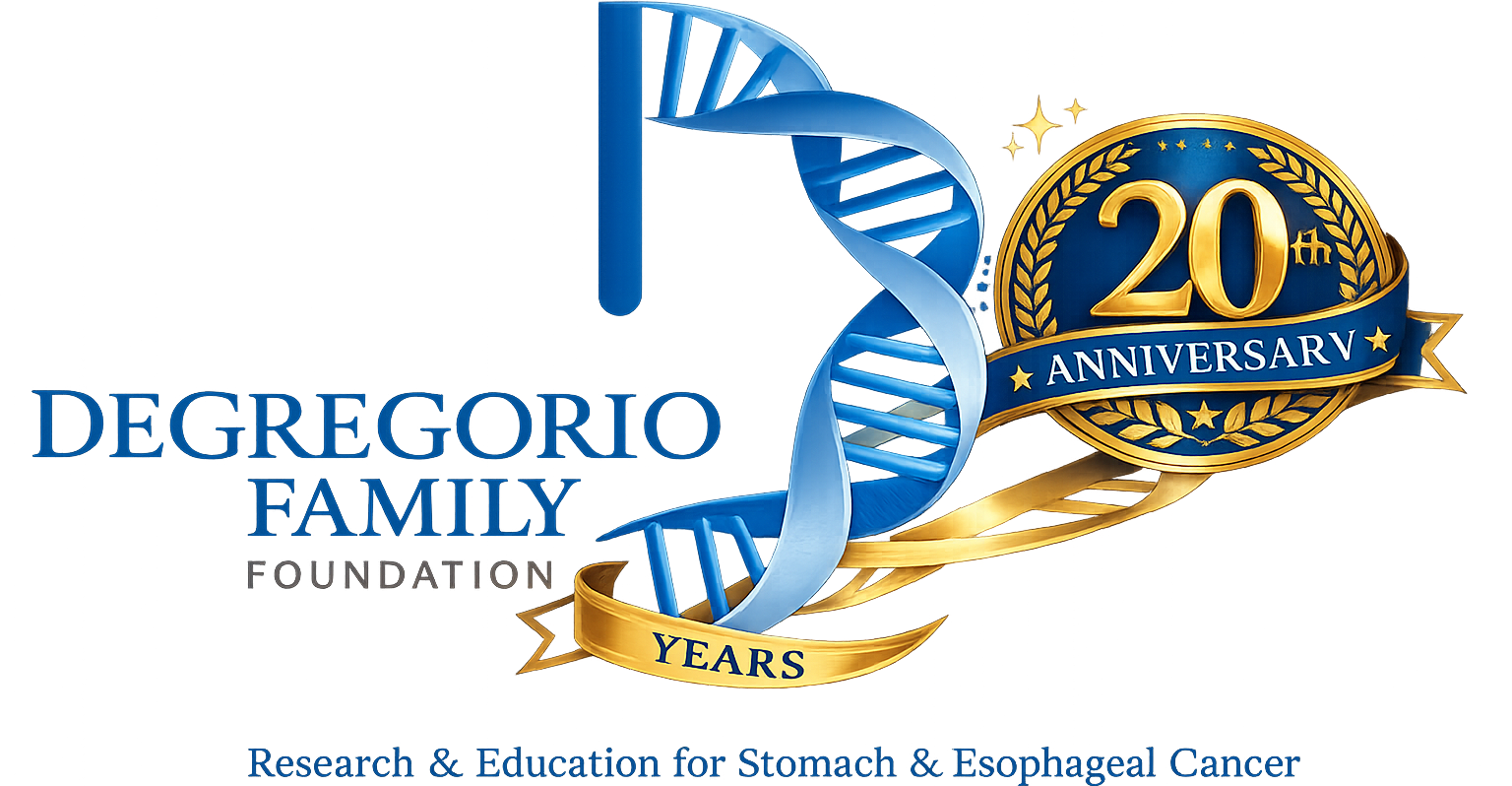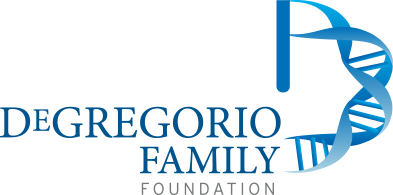
Timothy C. Wang, MD
Dr. Manish Shah
Dr. Timothy C. Wang is the Silberberg Professor of Medicine and Chair of the Division of Gastroenterology. He received his MD from Columbia University, followed by clinical training at Washington University and Harvard/MGH. His main interest is in murine models of gastric cancer, and the role of stem cells in inflammation-associated cancer. Dr. Wang’s laboratory reported that gastric cancer in murine models can originate from bone marrow-derived stem cells. A separate project has identified markers for human gastric cancer stem cells. As the leader of the Columbia University Tumor Microenvironment Network, he has investigated the importance of the stem cell niche in governing stem cell differentiation, and how this niche is altered in chronic inflammatory states that predispose to cancer. He is currently investigating the role of both fibroblasts and myeloid cells in carcinogenesis.
Dr. Wang is a recipient of the AGA Funderberg Gastric Cancer Award and is the Editor of the first textbook on gastric cancer, “The Biology of Gastric Cancer” (Springer 2008). He is the Chair of the GCMB NIH study section, Chair of the AGA Future Trends Committee, Associate Editor for Gastroenterology, Editor in Chief of Therapeutic Advances in Gastroenterology. He is the author of more than 160 peer-reviewed publications.
Habibollahi P, Waldron T, Heidari P, Sung Cho H, Alcantara D, Josephson L, Wang TC, Rustgi AK, Mahmood U.
Mol Imaging. 2014 May 1;13(3):1-11.
Abrams JA, Appelman HD, Beer DG, Berry LD, Chak A, Falk GW, Fitzgerald RC, Ginsberg GG, Grady WM, Joshi BP, Lynch JP, Markowitz S, Richmond ES, Rustgi AK, Seibel EJ, Shaheen NJ, Shyr Y, Umar A, Wang KK, Wang TC, Wang TD, Yassin R.
Gastroenterology. 2014 Jun;146(7):1586-90. doi: 10.1053/j.gastro.2014.04.014. Epub 2014 Apr 21.
Wong GS, Habibollahi P, Heidari P, Lee JS, Klein-Szanto AJ, Waldron TJ, Gimotty P, Nakagawa H, Taylor PR, Wang TC, Mahmood U, Rustgi AK.
Gastroenterology. 2013 Feb;144(2):294-7. doi:
Barrett esophagus: what a mouse model can teach us about human disease.
Quante M, Abrams JA, Lee Y, Wang TC.
Cell Cycle. 2012 Dec 1;11(23):4328-38. doi: 10.4161/cc.22485. Epub 2012 Oct 24. Review
Baird M, Woon Ang P, Clark I, Bishop D, Oshima M, Cook MC, Hemmings C, Takeishi S, Worthley D, Boussioutas A, Wang TC, Taupin D.
Lab Invest. 2013 Jan;93(1):112-22. doi: 10.1038/labinvest.2012.131. Epub 2012 Oct 29.
Gonda TA, Kim YI, Salas MC, Gamble MV, Shibata W, Muthupalani S, Sohn KJ, Abrams JA, Fox JG, Wang TC, Tycko B.
Gastroenterology. 2012 Apr;142(4):824-833.e7. doi: 10.1053/j.gastro.2011.12.058. Epub 2012 Jan 13.
Trefoil factor 2 requires Na/H exchanger 2 activity to enhance mouse gastric epithelial repair.
Xue L, Aihara E, Wang TC, Montrose MH.
J Biol Chem. 2011 Nov 4;286(44):38375-82. doi: 10.1074/jbc.M111.268219. Epub 2011 Sep 7.
PMID:21900251
Systemic activation of K-ras rapidly induces gastric hyperplasia and metaplasia in mice.
Matkar SS, Durham A, Brice A, Wang TC, Rustgi AK, Hua X.
Am J Cancer Res. 2011 Apr 1;1(4):432-445.
Sheh A, Ge Z, Parry NM, Muthupalani S, Rager JE, Raczynski AR, Mobley MW, McCabe AF, Fry RC, Wang TC, Fox JG.
Cancer Prev Res (Phila). 2011 Sep;4(9):1426-35. doi: 10.1158/1940-6207.CAPR-11-0219. Epub 2011 Jun 16.
Okumura T, Ericksen RE, Takaishi S, Wang SS, Dubeykovskiy Z, Shibata W, Betz KS, Muthupalani S, Rogers AB, Fox JG, Rustgi AK, Wang TC.
Cancer Res. 2010 Nov 1;70(21):8435-45. doi: 10.1158/0008-5472.CAN-10-1506. Epub 2010 Oct 19.
Peterson AJ, Menheniott TR, O’Connor L, Walduck AK, Fox JG, Kawakami K, Minamoto T, Ong EK, Wang TC, Judd LM, Giraud AS.
Gastroenterology. 2010 Dec;139(6):2005-17. doi: 10.1053/j.gastro.2010.08.043. Epub 2010 Aug 27.
Hutchinson L, Stenstrom B, Chen D, Piperdi B, Levey S, Lyle S, Wang TC, Houghton J.
Stem Cells Dev. 2011 Jan;20(1):11-7. doi: 10.1089/scd.2010.0139. Epub 2010 Oct 12.
PMID:20677919
Goldenring JR, Nam KT, Wang TC, Mills JC, Wright NA.
Gastroenterology. 2010 Jun;138(7):2207-10, 2210.e1. doi: 10.1053/j.gastro.2010.04.023. Epub 2010 May 5. No abstract available
Elevated serum gastrin is associated with a history of advanced neoplasia in Barrett’s esophagus.
Wang JS, Varro A, Lightdale CJ, Lertkowit N, Slack KN, Fingerhood ML, Tsai WY, Wang TC, Abrams JA.
Am J Gastroenterol. 2010 May;105(5):1039-45. doi: 10.1038/ajg.2009.629. Epub 2009 Nov 10.
Lee CW, Rickman B, Rogers AB, Muthupalani S, Takaishi S, Yang P, Wang TC, Fox JG.
Cancer Res. 2009 Oct 15;69(20):8166-74. doi: 10.1158/0008-5472.CAN-08-3856. Epub 2009 Oct 13.
Takaishi S, Tu S, Dubeykovskaya ZA, Whary MT, Muthupalani S, Rickman BH, Rogers AB, Lertkowit N, Varro A, Fox JG, Wang TC.
Am J Pathol. 2009 Jul;175(1):365-75. doi: 10.2353/ajpath.2009.081165.
Tu SP, Chi AL, Ai W, Takaishi S, Dubeykovskaya Z, Quante M, Fox JG, Wang TC.
Am J Physiol Gastrointest Liver Physiol. 2009 Aug;297(2):G385-96. doi: 10.1152/ajpgi.90620.2008. Epub 2009 Jun 18.
Identification of gastric cancer stem cells using the cell surface marker CD44.
Takaishi S, Okumura T, Tu S, Wang SS, Shibata W, Vigneshwaran R, Gordon SA, Shimada Y, Wang TC.
Stem Cells. 2009 May;27(5):1006-20. doi: 10.1002/stem.30.
Altered gastric chief cell lineage differentiation in histamine-deficient mice.
Nozaki K, Weis V, Wang TC, Falus A, Goldenring JR.Am J Physiol Gastrointest Liver Physiol. 2009 Jun;296(6):G1211-20. doi: 10.1152/ajpgi.90643.2008. Epub 2009 Apr 9.
Identification of ezrin as a target of gastrin in immature mouse gastric parietal cells.
Pagliocca A, Hegyi P, Venglovecz V, Rackstraw SA, Khan Z, Burdyga G, Wang TC, Dimaline R, Varro A, Dockray GJ.
Exp Physiol. 2008 Nov;93(11):1174-89. doi: 10.1113/expphysiol.2008.042648. Epub 2008 Jun 20.
Takaishi S, Okumura T, Wang TC.
J Clin Oncol. 2008 Jun 10;26(17):2876-82. doi: 10.1200/JCO.2007.15.2603. Review.
Lee CW, Rickman B, Rogers AB, Ge Z, Wang TC, Fox JG.
Cancer Res. 2008 May 1;68(9):3540-8. doi: 10.1158/0008-5472.CAN-07-6786. Epub 2008 Apr 25.
Lee CW, Wang XD, Chien KL, Ge Z, Rickman BH, Rogers AB, Varro A, Whary MT, Wang TC, Fox JG.
Int J Cancer. 2008 Mar 1;122(5):1068-76.
Ohtani M, García A, Rogers AB, Ge Z, Taylor NS, Xu S, Watanabe K, Marini RP, Whary MT, Wang TC, Fox JG.
Carcinogenesis. 2007 Dec;28(12):2597-604. Epub 2007 Aug 27.
Steele IA, Dimaline R, Pritchard DM, Peek RM Jr, Wang TC, Dockray GJ, Varro A.
Am J Physiol Gastrointest Liver Physiol. 2007 Jul;293(1):G347-54. Epub 2007 Apr 26.
Stenström B, Zhao CM, Rogers AB, Nilsson HO, Sturegård E, Lundgren S, Fox JG, Wang TC, Wadström TM, Chen D.
Carcinogenesis. 2007 Sep;28(9):2041-6. Epub 2007 Mar 26.
Gene expression profiling in a mouse model of Helicobacter-induced gastric cancer.
Takaishi S, Wang TC.
Cancer Sci. 2007 Mar;98(3):284-93.
Inflammation, atrophy, and gastric cancer.
Fox JG, Wang TC.
J Clin Invest. 2007 Jan;117(1):60-9. Review.
Gastrin-induced apoptosis contributes to carcinogenesis in the stomach.
Cui G, Takaishi S, Ai W, Betz KS, Florholmen J, Koh TJ, Houghton J, Pritchard DM, Wang TC.
Lab Invest. 2006 Oct;86(10):1037-51. Epub 2006 Aug 7.
McCaig C, Duval C, Hemers E, Steele I, Pritchard DM, Przemeck S, Dimaline R, Ahmed S, Bodger K, Kerrigan DD, Wang TC, Dockray GJ, Varro A.
Gastroenterology. 2006 May;130(6):1754-63. Epub 2006 Mar 6.
Takaishi S, Cui G, Frederick DM, Carlson JE, Houghton J, Varro A, Dockray GJ, Ge Z, Whary MT, Rogers AB, Fox JG, Wang TC.
Gastroenterology. 2005 Jun;128(7):1965-83.
Cai X, Carlson J, Stoicov C, Li H, Wang TC, Houghton J.
Gastroenterology. 2005 Jun;128(7):1937-52.
Houghton J, Wang TC.
Gastroenterology. 2005 May;128(6):1567-78. Review.
PMID:15887152
Nomura S, Yamaguchi H, Ogawa M, Wang TC, Lee JR, Goldenring JR.
Am J Physiol Gastrointest Liver Physiol. 2005 Feb;288(2):G362-75.
Helicobacter and gastric cancer disease mechanisms: host response and disease susceptibility.
Li H, Stoicov C, Cai X, Wang TC, Houghton J.
Curr Gastroenterol Rep. 2003 Dec;5(6):459-67. Review.
Dhar DK, Wang TC, Maruyama R, Udagawa J, Kubota H, Fuji T, Tachibana M, Ono T, Otani H, Nagasue N.
Lab Invest. 2003 Sep;83(9):1343-52.
Fox JG, Sheppard BJ, Dangler CA, Whary MT, Ihrig M, Wang TC.
Cancer Res. 2002 Feb 1;62(3):696-702.

